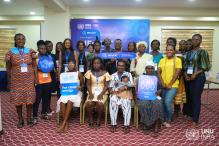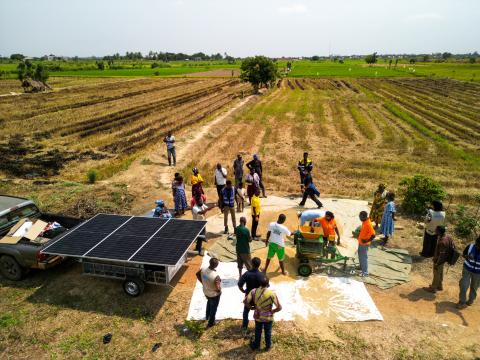
From August 26-29 2025, the UNU-INRA INFoCAT team travelled across select regions in Ghana, together with shortlisted agritech innovators and key stakeholders, to test their newly improved clean agritech created to help smallholder farmers and agro-processors.
These piloting trips were to show the creativity and problem-solving capabilities of these young green innovators, who have designed context-appropriate clean technologies, to enhance agricultural productivity, expand access to clean energy(solar powered), and reduce drudgery in farming and agro-processing.
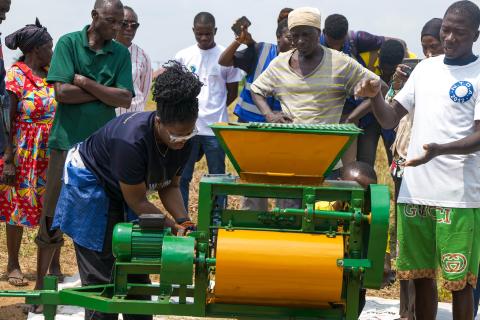
During the programme:
- The innovators test-run and demonstrated how their agri-technologies function.
- Smallholder women farmers were trained on the effective operation of the technologies.
- Key stakeholders discussed fine-tuning, scalability, sustainability, and adoption pathways of these machinery.
The innovations were piloted in Namesi-Yilo Krobo District of Ghana’s Eastern Region, Aveyime in the North Tongu District of Volta Region and Gomoa-East District, in the Central Region.
Innovations piloted in Ghana included:
-Integrated Cassava Processing Unit: A cassava peeling and washing machine, a cassava grater, an energy efficient multi-fuel (LPG/biogas, briquette, charcoal, firewood) gari(cassava flakes)roaster and a biogas system. This biogas system produces and stores biogas-to power a biogas generator that supplies electricity to the facility(where this unit is kept).
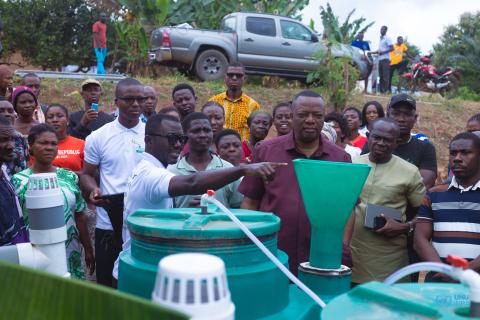
- Solar battery-powered grains dryer
- Rice winnower(solar powered)
-Smart solar powered irrigation system
-Groundnut plucking machine
-Mini combine harvester to harvest and dehusk maize.
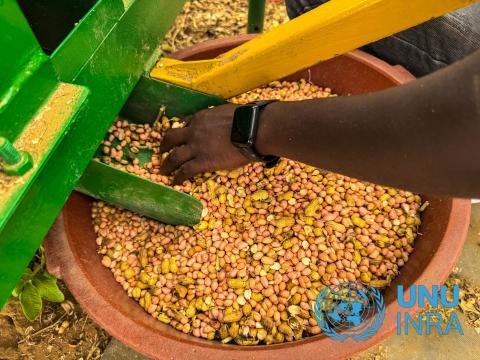
Senegal: 17, 18th July
Clean agritech innovations were also piloted in Senegal’s Bambèye (Diourbel region), Toubacouta (Fatick region), Taïba Niassène (Kaolack region), and Gapakh (Kaolack region).
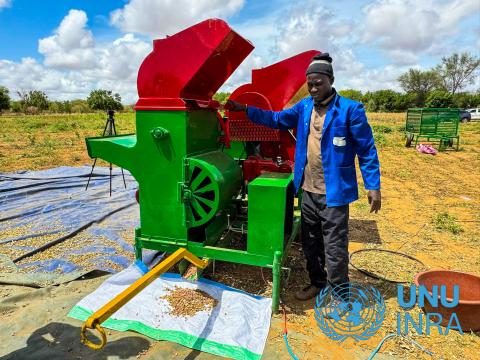
Innovations piloted include:
-A Groundnut pod plucker and dehuller,
-A mobile solar powered cool house for preservation of harvested food crop
-A cashew nut crusher
-A smart solar-powered irrigation system
-A dynamo- energy generator .
Cote D’Ivoire will be subsequently piloting their clean agritech innovations in the coming months.
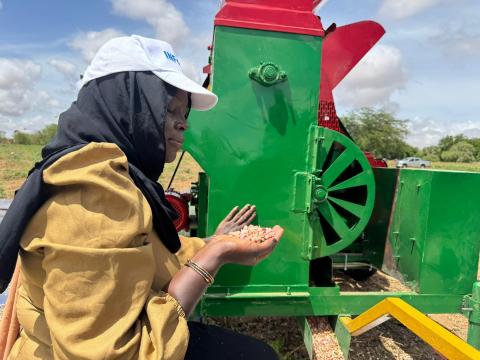
Backdrop
Prior to this piloting stage, Innovators (10 in Ghana, 5 in Senegal and 5 in Cote D’Ivoire), who were shortlisted as part of the INFoCAT Innovation Challenge, won an initial grant of $7,400 . Subsequently, they went through a series of meetings with smallholders and industry experts, to fine-tune their initial agritech innovations to make them more efficient for farmers and agro-processors. A key element of these innovations is also the renewable energy component. Industry experts: agricultural and renewable energy experts have coached these young innovators throughout the process of fine tuning these machinery, to make them more environmentally friendly.
After this piloting stage and rigorous appraisal of the innovations, 3 of these innovators:(1 from Ghana, 1 from Senegal and 1 from Cote D’Ivoire) will be selected. These winners will receive a sum of $37,00 to scale up their innovations(businesses).
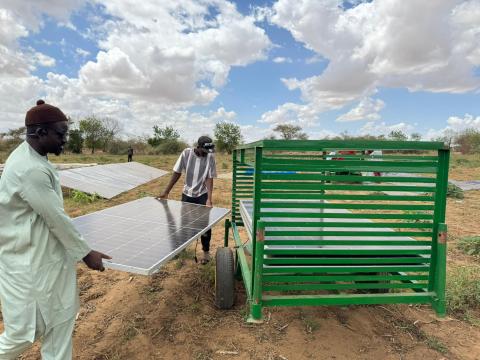
About INFoCAT
UNU-INRA’s INFOCAT (Innovate for Clean Agricultural Technologies), is an initiative funded by International Development Research Center (IDRC) under the Clean Energy for Development: A Call for Action initiative (CEDCA). INFoCAT implemented in Ghana, Senegal, and Cote D’Ivoire. Project Partners are Enda Energie (Senegal) and UNU-INRA operating Unit (Cote D’Ivoire).
The overall goal of the project is to advance women's and youth economic empowerment in rural areas of selected African countries by promoting low-cost, clean, energy-powered technology solutions that increase agricultural productivity and income for smallholder rural farmers.

